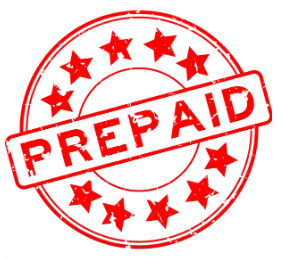Should I consider pre-paying for flight training?
 Pre-paying for flight training can be a contentious decision for aspiring professional pilots, with both notable benefits and significant risks to consider. Understanding these aspects is crucial for making an informed choice about how to finance your aviation education.
Pre-paying for flight training can be a contentious decision for aspiring professional pilots, with both notable benefits and significant risks to consider. Understanding these aspects is crucial for making an informed choice about how to finance your aviation education.
Pre-paying for flight training often comes with discounts, potentially reducing the overall cost. Flight schools may offer packages that are more economical than paying per lesson, making it a financially attractive option.
Pre-paying can serve as a strong motivator to complete the training. The financial commitment can encourage students to stay focused and dedicated, minimizing the chances of dropping out.
Pre-paying locks in the price of training, protecting against future price increases. This can be particularly beneficial in times of inflation or when fuel prices, a significant part of flight training costs, are volatile.
Handling payment upfront can simplify the administrative process. It reduces the hassle of making frequent payments, allowing students to focus more on their training rather than financial logistics.
One of the biggest risks is the potential for the flight school to close or declare bankruptcy. In such cases, students may lose their pre-paid funds and find themselves without a training facility.
If the quality of training does not meet expectations, students who have pre-paid might find it challenging to switch schools without financial loss. Dissatisfaction with training methods, instructor quality, or aircraft maintenance can become significant issues
Unforeseen health or personal issues might force a student to pause or discontinue their training. Without refund policies, pre-paid funds might not be recoverable, resulting in substantial financial losses.
Pre-paying may create pressure to progress quickly, potentially compromising the quality of training. Students might feel rushed to complete hours to get their money’s worth, which can lead to inadequate mastery of necessary skills.
Aviation is a demanding career, and some students may realize during training that it’s not the right path for them. Pre-paying can tie them to a commitment that they no longer wish to pursue, making it difficult to change directions without financial repercussions.
Thoroughly research flight schools before making a financial commitment. Choose accredited institutions with strong reputations and positive reviews from former students. Understand the school’s refund policies in case of withdrawal or discontinuation. Look for schools that offer partial refunds or allow funds to be transferred to other training programs.
Consider making incremental payments instead of pre-paying the entire amount. Some schools may allow partial pre-payment, which balances the benefits of discounts with reduced financial risk. Review all contracts and agreements carefully. Ensure they include clauses that protect your investment, such as performance guarantees or contingency plans in case of school closure.
While pre-paying for flight training can offer significant financial benefits and encourage commitment, it also carries substantial risks. Aspiring pilots should weigh these factors carefully, conduct thorough research, and consider safeguards to protect their investment and ensure a successful training experience.

Comments
Should I consider pre-paying for flight training? — No Comments
HTML tags allowed in your comment: <a href="" title=""> <abbr title=""> <acronym title=""> <b> <blockquote cite=""> <cite> <code> <del datetime=""> <em> <i> <q cite=""> <s> <strike> <strong>